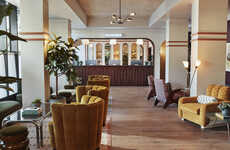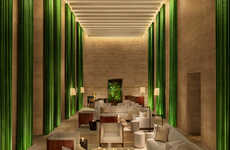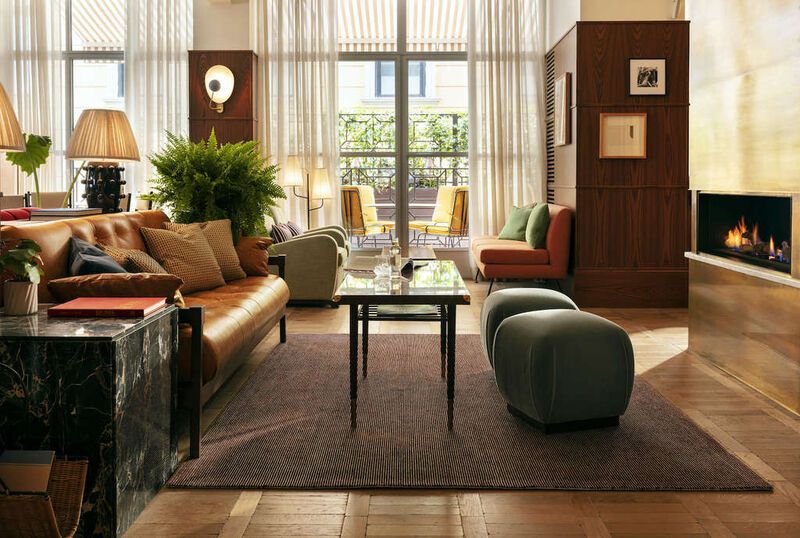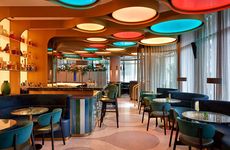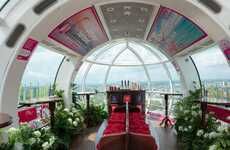
The New Hoxton, Rome Combines Familiar Designs with Italian Acccents
Josh Thompson-Persaud — May 17, 2021 — World
References: thehoxton & cpp-luxury
The new Hoxton, Rome combines comfort and class with its familiar Hoxton designs and artful Italian accents. The new international hotel, the brand's tenth venture, makes use of an old Italian building from the 1970s. During the redesign, the architects of the Hoxton, Rome took influence from the old design features and incorporated them into the new one. While the rich wooden paneling and warm, eclectic interiors are decidedly Hoxton, the Murano glass chandeliers and lightly colored bathrooms pay homage to bygone Italian design.
Within the seven floors of the Hoxton, Rome is a large lobby, an outdoor terrace, an events space, a restaurant and bakery, and a top-notch bar and cafe. The hotel offers six room sizes: Shoebox, Cosy, Cosy Up, Roomy, Roomy Terrace, and Biggy. The Hoxton, Rome is located near several notable tourist destinations including Villa Borghese and the Parioli neighborhood.
Image Credit: CPP Luxury
Within the seven floors of the Hoxton, Rome is a large lobby, an outdoor terrace, an events space, a restaurant and bakery, and a top-notch bar and cafe. The hotel offers six room sizes: Shoebox, Cosy, Cosy Up, Roomy, Roomy Terrace, and Biggy. The Hoxton, Rome is located near several notable tourist destinations including Villa Borghese and the Parioli neighborhood.
Image Credit: CPP Luxury
Trend Themes
1. 70s-inspired Italian Hospitality - Hospitality companies can offer unique travel experiences that combine familiar designs with local cultural accents to create a nostalgic, yet modern ambiance.
2. Incorporating Local Culture Into Hotel Design - Hotels can integrate local cultural elements into their design to differentiate themselves and offer guests more than just a place to stay.
3. Multi-functional Hotel Spaces - Hotels can create multi-functional spaces that cater to diverse customer needs, from accommodation to food and beverage, events, and coworking.
Industry Implications
1. Hospitality - The hospitality industry can use nostalgia to create unique brand experiences that differentiate them from competitors and attract customers.
2. Architecture and Design - Architects and designers can incorporate local cultural elements into their projects to create unique and meaningful spaces that resonate with people's memories and emotions.
3. Tourism - Tourism destinations can leverage their local culture and heritage to offer visitors more than just sightseeing opportunities, but also immersive experiences that connect them with the place and its people.
5.2
Score
Popularity
Activity
Freshness


